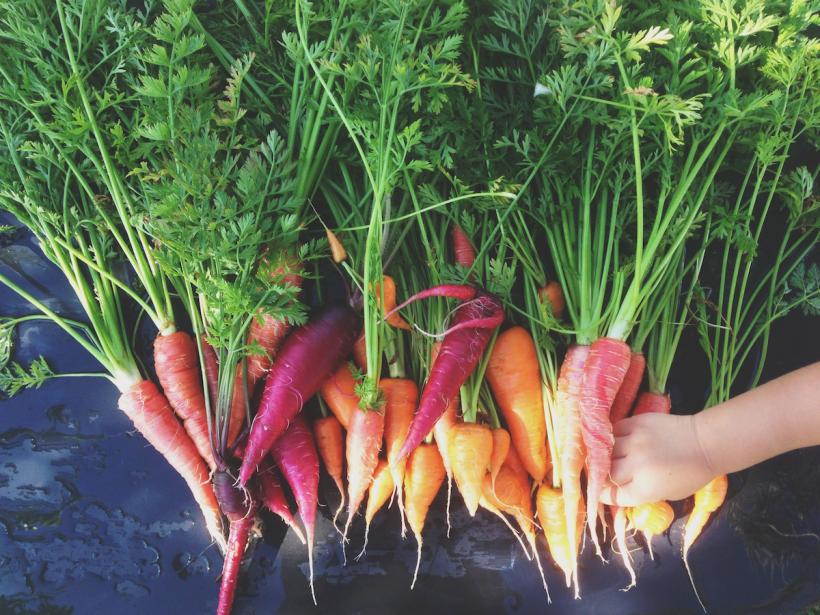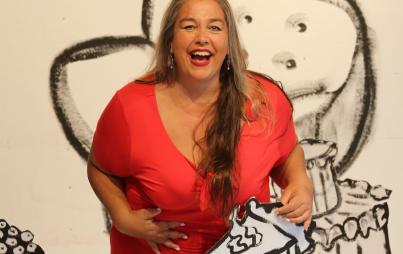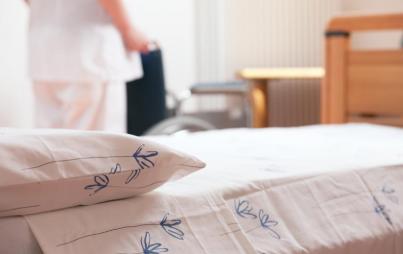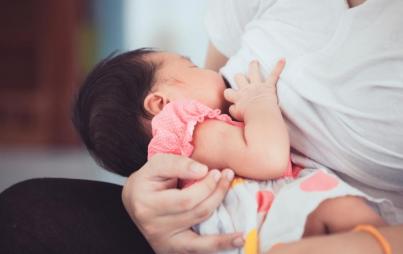
What happens when organic food prices out those who are struggling just to stay out of bankruptcy?
My first husband and I used to have phrases to describe whatever degree of wealth/poverty we were experiencing at any given time.
We were “Taco Bell Broke.”
Sometimes we were "Carl's Jr. On Our Anniversary Broke.”
Sometimes we were the most broke: “Rollin’ Nickels For Gas Broke.”
Thankfully we were never “Rollin’ Nickels For Bread Broke.” But to be fair, the bread we bought in 1993 was literally $.25; you can find a quarter in the sofa cushions.
We weren't broke forever.
Three years in, we reached “Carl’s Jr. Four Times A Year Broke” status. Five years in, we'd graduated to “Budgeting Groceries To The Penny Broke.” At year 11, with the help of a grant from our city, we bought a house.
We were still mostly broke, but “Living In Our Own House Broke.” I couldn't buy clothes at Old Navy (which for some reason was luxurious then), but we had clothes. I couldn't buy anything organic, but we were never hungry. We had a house that belonged to us (well, the bank, but sort of us), even if my in-laws had to pay to fix our air conditioning.
It’s not that I didn’t feel guilty about buying sweatshop clothing or food covered in pesticides. It’s that I didn’t I have the resources to feel guilty. I bought clothes at Walmart. I bought food that wasn’t organic. I did it because I had to feed and clothe my family.
This is the thing about being poor, this kind of discernment comes at a price you can’t afford.
I went to nursing school. I got a job. Things got better.
And then we got divorced.
I moved into an apartment and started paying rent, and went back to paying my electric bill long after the dreaded pink notice came in the mail.
Before I knew it, I was remarried with two more babies and a husband whose job paid all the bills. I stayed home to bake and raise babies. No more any kind of “broke,” unless “We Can’t Go On Family Vacation This Summer Broke” is a thing (it is not a thing).
We are the kind of comfortable now that around the beginning of this year, I swore off fast fashion.
I decided to change my shopping habits because my choices impact other people negatively and that makes me feel like garbage. (I didn’t quit shopping at Amazon though, because I’m weak like that... and a hypocrite.) So I sourced some organic fair-trade-gluten-free-vegan fabric and starting making my own dresses. I searched the internet for things that my kids could wear that weren’t made by another child in a developing country.
I committed to memory the price of every food we'd regularly buy and make my list to the penny. On a particular trip when we were particularly broke, I went in with my list and $40 to buy groceries for the week. I left the store having spent exactly $40. I cried.
Last week, my eldest daughter needed a dress for a memorial service. We went to Target (she doesn't live with me and doesn't abide by the fast fashion rule). While she browsed the dresses, I zig-zagged my way through the racks, fingering the fabrics, admiring the details of white lace and pink ribbon, pining over the spring styles.
By the time I caught up with her, I was sulking like a toddler in the toy aisle.
Bet you wish you hadn’t given up fast fashion, huh mom?
And then from my actual mouth came the most absurd phrase, probably ever: “Giving up fast fashion may be the hardest thing I’ve EVER DONE.”
I meant it at least a little hyperbolically, but the truth is, I was really mourning the loss of my quick fashion fix.
The previous week, I was on a hunt for rice noodles. The grocery that used to carry rice noodles, and other ethnic food, is closed now. So I drove to Foods Co. with my nanny and 4-year-old in tow. Foods Co. is the bottom rung of the grocery experience — warehouse style, bag your own, bins of bulk, that kind of thing. The prices are unbelievably low. It smells unbelievably bad.
I hadn’t been in Foods Co. in at least 12 years.
For the first 10 years of adulthood, Foods Co. was the only place I could shop. I’d tote three tiny kids through the store every week — one holding on to the cart, one sitting in the front, one in a car seat in the back. We'd take our detailed list, scratch each item out as we put it in the cart. I committed to memory the price of every food we'd regularly buy and make my list to the penny. On a particular trip when we were particularly broke, I went in with my list and $40 to buy groceries for the week. I left the store having spent exactly $40. I cried.
On the day I was looking for rice noodles, I spent $75 on things that weren’t even on the grocery list I never make, because I don’t have a grocery “budget," and got $60 cash back ($20 for each of my adult/teenage children because I’m nice that way).
I paid, and I remembered that trip 17 years ago. I remembered bagging groceries alone, managing three wiggly babies. I remember how the woman in line behind me scolded me for giving my 2-year-old a sucker, a sucker I gave him because it was the only way I could get the shopping done. I remembered how I thought I’d never just be able to buy groceries without budgeting to the penny.
I thought of my fast fashion ban and the $.25 bread and Carl’s Jr. and how we never eat Carl’s Jr. now because we go to restaurants where you order from a paper menu and people bring the food to your table while you talk about politics or what college the kids should go to. I thought of how I can drive an hour to Whole Foods and fill my shopping cart with organic meat and veggies.
Instead of worrying about the price of gas, I spend that time thinking about what local organic seasonal fresh and beautiful produce they might have at Whole Foods, and what I might make with it. I’m not thinking about the cost of the produce, because the price doesn’t matter.
I’m buying the produce because it’s healthy and I can afford health.
I thought of the organic fair-trade-gluten free-vegan-fabric that’s $20 a yard and how, at three yards per dress, making your own clothing is prohibitively expensive for most folks. I thought of how I have an incredible Viking sewing machine and free time to sew because I have a job that pays me actual money to work from my actual sofa. I thought about how we have a house and enough land around it to grow our own organic food, and how rare it is to have that.
My life is, by almost every standard, very comfortable.
I have the insurance I need to buy the medicine I require to manage my mental illness. I have a therapist to help me “process” the leftover issues from my childhood that I have time to “process” because I’m not worried about managing my mental illness. I’m the child of an addict, but I can afford both the time and cost of the therapy I need to process it. I’m fat, but the kind of fat that’s more curvy than lumpy.
The most stressful thing that happened to me in September, besides going to school with my anxious 6-year-old every day, was whether I should get the iPhone 7 or 7 plus. (I went with the plus because I’m extra like that.) And the most stressful thing in December was deciding what charities we’d donate to, because that’s what people do when they don’t have to worry about how they are going to buy gifts.
Giving up “fast fashion” is something privileged people can do because privileged people don’t have to agonize about where they shop. It’s a choice I couldn’t make when I was poor, but one I feel obligated to make now.
It’s one I feel obligated to write about, like this is some sort of redemption, “I couldn’t before but I am now.”
Our shopping habits matter; where you buy clothes, what you feed your family, it matters. But I think most folks are doing their very best to get up every day, to work, to raise kids. I think our best is good enough.







